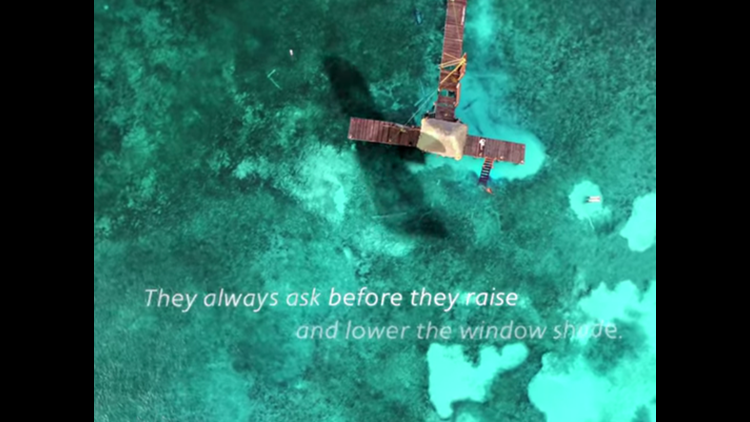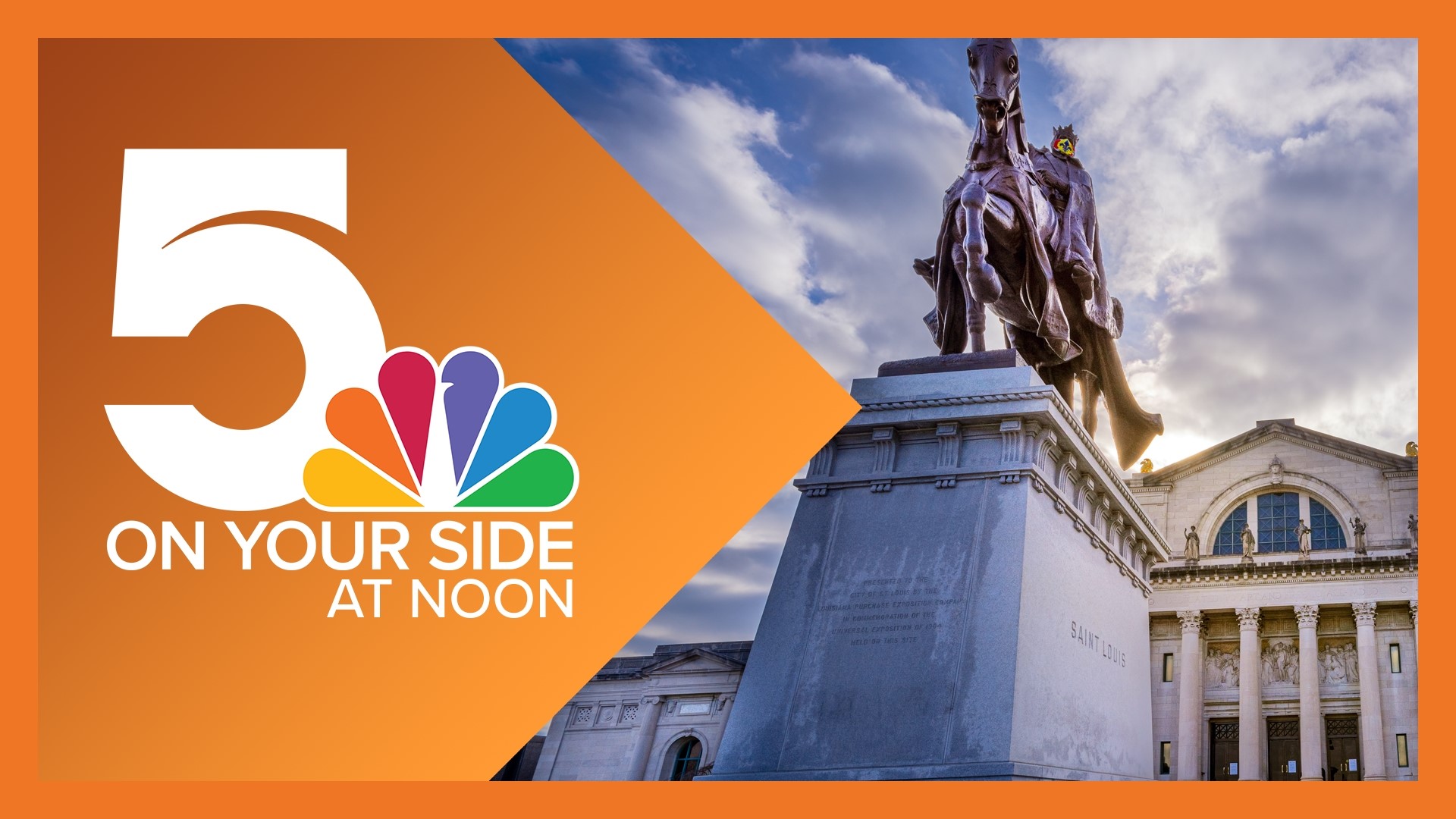Good news, fellow travelers:
The folks who run American Airlines have taken a good, hard look at the horror that is modern air travel — the cramped seating, confiscatory baggage fees, interminable security delays, absurd carry-on restrictions, etc. — and they've tracked down the root of the problem:
The people who fly American Airlines.
In a groundbreaking advertising campaign debuting this week in newspapers across the country, the nation’s third-largest air carrier tells its passengers: Ask not what American Airlines can do for you; ask what you can do for American Airlines.
Not in so many words, of course.
And to be strictly accurate, the new advertising campaign doesn’t actually criticize the company’s customers; it merely suggests that maybe the worst of those customers could afford to be a little bit more like, you know, the best.
“WHAT DOES IT MEAN TO BE A GREAT FLYER?” the airline asks readers in a glossy pullout page inserted in Tuesday's editions of the New York Times and the Wall Street Journal.
And just in case anyone mistakenly thought that was a rhetorical question, the advertisement goes on to answer in considerable detail, listing the characteristics it undoubtedly wishes more American passengers would strive to emulate.
Do be a do-bee
Great fliers, the airline's ad says, “always ask before opening or closing the window shade,” thus making sure passengers around them are on the same page about how brilliantly or dimly their row of the aircraft should be illuminated.
“Just like they always relinquish the armrest to the person in the middle seat,” the ad goes on, in what some might construe as a subtle indictment of the millions of passengers who defend any armrest within their reach like a grizzly bear mama protecting her cubs.
Yeah, you might ask, but how do great fliers feel about babies who scream like they’re being waterboarded while other passengers are trying to sleep, work or converse?
“They love babies,” American’s ad answers, “but bring noise-canceling headphones.” (A pair of such headphones — Bose QuietComfort 25s, available on Amazon.com for $299 — is prominently featured in the ad.)
Know what else distinguishes great fliers? They can sleep anywhere, “their head against a pillow or a much-loved, wadded-up jacket.”
“Always upbeat,” they recognize every plane in the fleet, cheerfully return the friendly greetings bestowed by American Airlines flight attendants, and “make the best of their situation, no matter where they’re sitting.”
Even if it’s in the terminal, waiting to see whether the flight that has just been postponed yet again will take off in this calendar year.
No more cry-babies
Do you get it now, you spoiled, simpering nabobs of entitlement? Do you understand that “great fliers” (a.k.a. “grown-ups”) don’t expect to get from Detroit to Dubuque in a 220-ton powder keg hurtling through the air at 550 m.p.h. without a little turbulence along the way?
Can you appreciate that a mature adult’s response to such predictable adversity is not to whine about it, but to make the best of it, exhibiting a reasonable human regard for both the American Airlines employees who are trying to fix it and to their fellow passengers?
That virtually every flight, no matter how snafu-ridden, would go a lot smoother if all you passengers would just stay in your freaking seats with your seat belts fastened loosely around your freaking waists and turn up your freaking Bose QuietComfort 25s?
The straight dope
And if you think I’m here to make fun of American’s man-in-the-mirror campaign, dear readers, you are dead wrong. Because I find it kind of refreshing.
How often, since we filed out of our high school commencement ceremonies, has anyone seriously challenged us to take responsibility for our responses to adversity, or suggested that we bear a share of the blame when our petulance makes the consumer nightmares that befall us every day a little worse?
When was the last time a candidate seeking election to public office looked us squarely in the eye and hinted, even obliquely, that some of the things we find intolerable about our politics might reflect defects in our own character or thinking?
From JFK to Reagan
John F. Kennedy did that, famously, in the Inaugural Address I alluded to above (“Ask not what your country can do for you, etc.)
But the last time one of his successors said anything remotely similar was in 1979, when then-President Jimmy Carter suggested that the selfish narcissism of everyday Americans might be partly to blame for the country’s "crisis of confidence."
For those too young to remember, most of Carter’s constituents reacted as though he had unleashed sarin gas on midtown Manhattan. He was quickly succeeded by Ronald Reagan, who reassured Americans that whatever was wrong with their country was Carter’s fault, not theirs.
Savvy politicians in both parties have been following Reagan’s lead ever since, which is why the large number of Americans who loathe Donald Trump and Hillary Clinton equally never think to ponder which of their own shortcomings might be mirrored in the major parties’ presidential nominees.
Yet Kennedy was right when he suggested that ordinary Americans were as obligated to their country as their country was to them.
And American Airlines isn’t just deflecting responsibility when it suggests that how we respond to the predictable travails of modern air travel can make the experience dramatically better or worse for our fellow passengers; it’s reminding us of a simple truth — a truth our mothers taught us, and that we now pay psychotherapists, personal coaches and yoga teachers to remind us about:
We control more than we think we control.
Yes, boys and girls, American Airlines is right: Not about who’s culpable for the myriad things that go wrong in commercial aviation, but about who, practically speaking, can do the most to make the situation tolerable when your red-eye to San Francisco is diverted to Grand Forks at 2 a.m. because of equipment problems.
It’s not the pilot. Or the flight attendant. Or the Vice President of Customer Relations (although your call is very important to her.)
It’s you, you big dummy: You, right there in seat 14B, between the elderly lady with the airsick therapy Chihuahua and the software salesman who might lose his job if he misses his 9 a.m. meeting in Palo Alto, Calif.
You’re all screwed, after all — every benighted one of you. So why take it out on the poor Chihuahua? Or the weepy software salesman?
Or even the flight attendant, for that matter?
I bet she doesn’t want to go to Grand Forks, either.



